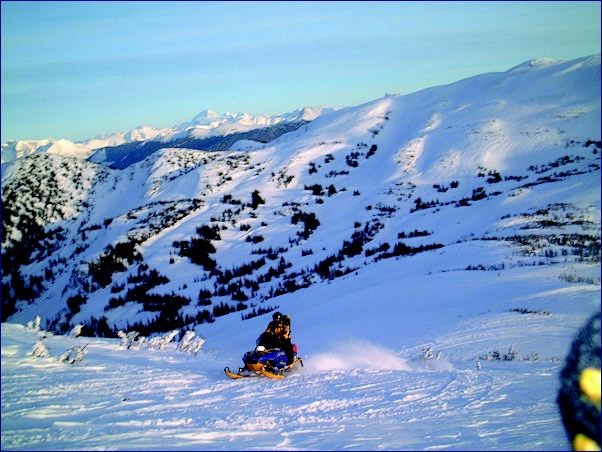When it comes to enjoying the great outdoors, there is a balance between the freedom of the wilderness and the various rules and regulations to protect the natural environment.
As of Jan. 1, the province has started to implement their new off-road vehicle (ORV) management framework - regulations three years in the making.
Announced by the minster of tourism, culture and arts in 2009, the framework is intended to create a "common vision and a solid blueprint for action" for regulating off-road vehicles.
"For over 30 years, we've known that B.C. has lagged behind when it comes to ORV regulations, to the detriment of personal safety, environmental responsibility, tourism potential and enhancement of ORV spots," said Bruno Delesalle, co-chair of the ORV Coalition back in 2009.
With its winter start, snowmobilers will be some of the first to see any changes to their operations.
The new framework - which should be fully implemented by this fall - includes enhanced safety measures to reduce deaths or serious injuries, improved tools to help compliance and enforcement officials identify irresponsible ORV riders and track stolen vehicles, designating a number of ORV public road crossings to connect rural communities and environmentally-friendly muffler standards.
Prince George Snowmobile Club president Laurie Nicholson and communications director Gary Enders said they see pros and cons to the new rules.
In the first phase, vehicle operators will no longer need to obtain a police-issued operation permit if making a direct crossing across a highway where there is a stop sign or traffic control signal.
Making pit stops will be that much easier, they said.
"It made it really difficult, because if you rode from Prince George, you needed gas to go home," Nicholson said.
In addition, it should provide a boost to the economies of popular cross-country ride destinations like Barkerville.
"In the winter, they're a really dry community for income. Their tourism's all in the summertime," Enders said.
Road crossings are a sticky point for snowmobilers, who often find themselves making the decision to break the law.
"I know for a fact there are lots of people who live in West Gate or Bearpaw and there's riding areas that are right there," said Nicholson. "They have to ride down the road or trailer their sled for a block. You have to trailer a kilometre, just to make people happy."
Where the club takes issue with the new framework is in the noise restrictions. The province is calling for muffler standards and spark arrestors to reduce the risk of forest fires.
But snowmobiles shouldn't be lumped in with other off-road vehicles, Enders said. "In the wintertime, when there's three or four feet of snow on the ground, you don't have to worry about a forest fire," he said, adding that most snowmobiles have exhausts pointing straight down as opposed to the higher exhausts on motorcycles and all-terrain vehicles.
"They can' just be classified as off-road vehicles. Then you can have an enforcement officer saying, 'this is what the book says, you don't have one. Here's your ticket.' It's irrelevant."
And while noise seems to be accepted for bikes roaring through the middle of town, snowmobilers typically ride out in the bush, away from the general population. But even when riding through residential areas, Enders said there's more of a sound barrier than in the summertime.
"It's 30-below out here. No one's got their windows open, no one's got their doors open. If you go by outside, they don't really hear you," he said.
But the club members said they're all for regulations that make the sport safer and more enjoyable - as long as it isn't simply a money grab for the province.


